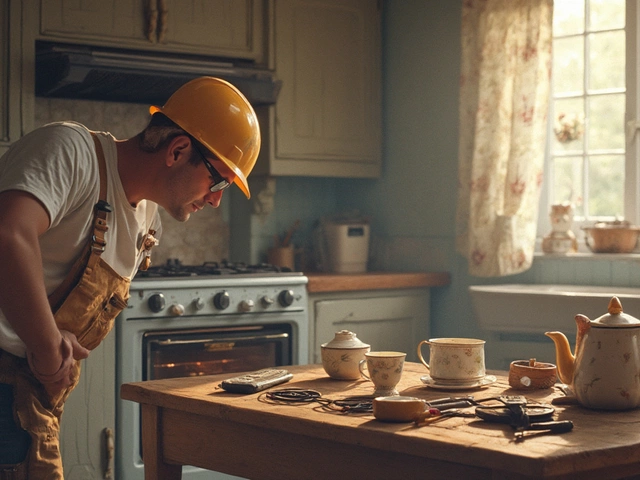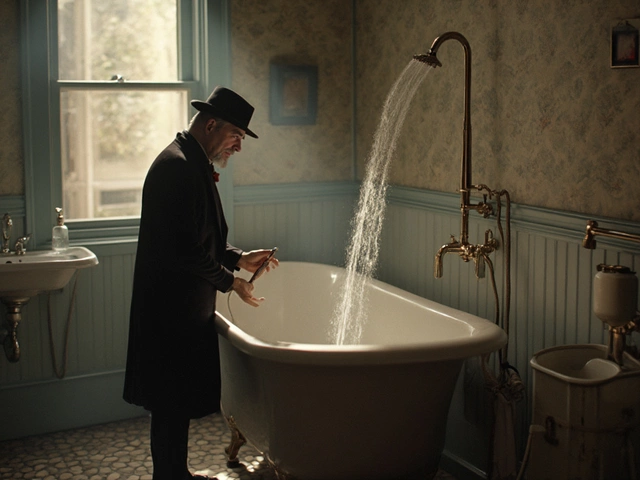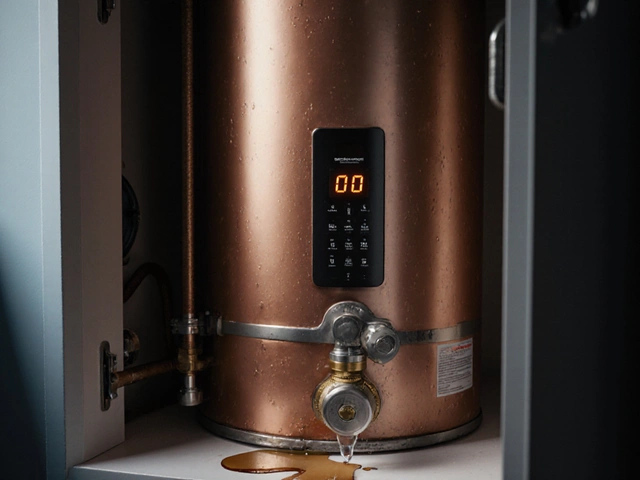If your shower feels like an arctic plunge or you hear weird popping noises from the tank, it’s probably time to think about a new water heater. Replacing a water heater isn’t rocket science, but it does need a plan, a few tools, and a clear idea of when to call in a pro.
Most tanks last 8‑12 years. If yours is older, look for rust spots on the outside, leaks around the base, or a sudden drop in hot‑water output. A noisy rumble or a corrosion‑filled tank means the interior is breaking down and a replacement will save you from a burst tank and water damage.
Even if the unit is still working, high energy bills can signal inefficiency. New models, especially those with a higher energy‑factor rating, can shave 10‑30% off your heating costs.
1. Turn off the power or gas. For electric heaters, flip the breaker at the consumer unit. For gas units, shut the gas valve and vent the system with a kitchen exhaust fan.
2. Drain the tank. Connect a garden hose to the drain valve, run it outside or to a floor drain, and open the valve. Opening a hot‑water faucet inside speeds up draining.
3. Disconnect plumbing. Use two wrenches to loosen the cold‑water inlet and hot‑water outlet. Have a bucket handy for any residual water.
4. Remove the old heater. Unscrew the mounting brackets, then carefully lift the tank out of its niche. It weighs a lot—ask a friend for help.
5. Install the new unit. Position the new heater, level it, and re‑attach the brackets. Re‑connect the inlet and outlet pipes, making sure the connections are tight but not over‑tightened.
6. Re‑fill and test. Close the drain valve, open the cold‑water supply, and watch the tank fill. Once water runs clear at the hot‑water tap, turn the power back on or relight the gas burner. Check for any leaks before you finish.
That’s the whole process in a nutshell. If any step feels beyond your comfort zone—especially anything involving gas—call a qualified engineer to avoid safety risks.
Finally, think about the type of heater you need. Traditional electric or gas tanks are cheaper upfront, but tank‑less models give endless hot water and can be more efficient in the long run. Size matters too: a 40‑gal tank works for a couple of showers daily, while a 50‑gal unit suits larger families.
Replacing your water heater can feel like a big job, but with the right prep and safety first, you’ll have hot water back in a day. And if you ever doubt a step, a local Bognor Regis appliance repair expert is just a call away to make sure the job is done right.

Water heaters don't last forever, so it’s important to know how long yours might stick around. Generally, these devices are built to last about 8 to 12 years, but several factors can influence their longevity. By understanding signs of wear, maintenance tricks, and when it's time to say goodbye to your old model, you can ensure hot showers won't become a thing of the past. Let's break down everything you need to know about your water heater's lifespan.

Deciding whether to repair or replace a dishwasher can be challenging. This article explores factors like cost, lifespan, and environmental impact to help homeowners make an informed decision. Learn about common dishwasher issues and repair tips to prolong its life. Evaluate professional repair services versus DIY fixes and consider when it's time to let go and invest in a new appliance.

Repairing an electric oven on your own can be daunting, but it may be easier than it seems. This article explores the basics of oven function, safety tips, and common issues like heating problems or broken knobs. You'll find valuable advice on identifying problems and learning when it's best to call a professional. With a bit of knowledge, some troubleshooting, and a few tools, you might be able to save money on repair costs. Remember to prioritize safety above all while attempting repairs.

A puzzling situation arises when your shower lacks hot water while the sink heats perfectly fine. This article dives into possible reasons like different pipe routes, shower valve issues, and water heater capacity. It also offers practical solutions, such as checking the temperature settings and flushing the water heater to remove sediment. Understanding common plumbing malfunctions can lead to quick fixes without calling a professional.

Replacing the anode rod in a water heater can extend its lifespan and prevent costly repairs. This article breaks down the cost of replacement, including materials and labor, and discusses why it's a crucial part of water heater maintenance. Discover how often anode rods should be checked and what signs indicate it's time for a replacement. Whether you DIY or hire a pro, understanding these factors can save you money and stress.

Spot the top warning signs of a failing hot water heater, from strange noises and leaks to temperature swings and error codes, plus practical fixes and when to call a pro.